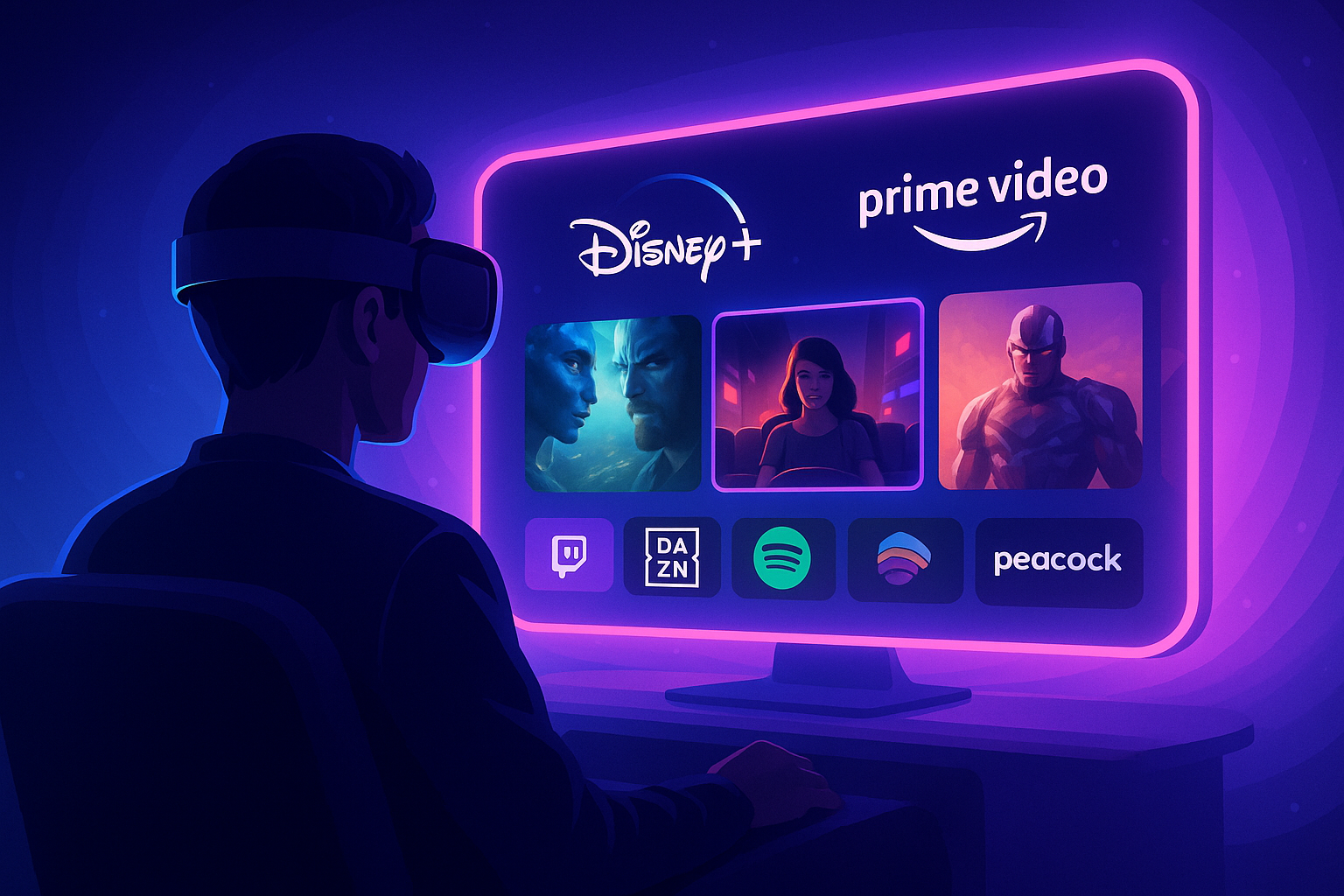Meta just pulled off what might be the most significant VR announcement of the year at Connect 2025, and honestly, I’m still processing the implications. The company didn’t just announce incremental updates – they’ve introduced two features that could fundamentally change how we think about virtual reality and home entertainment.
Hyperscape: Your Living Room, Now in VR
Let’s start with the jaw-dropper: Meta Horizon Hyperscape, which lets you capture a real-world scene with your Quest 3 or Quest 3S and visit it in VR with photorealistic graphics. This isn’t some gimmicky scanning tool – we’re talking about 5 to 10 minutes of walking around your room to capture a Hyperscape, followed by 1 to 8 hours of processing that creates what Meta calls “an immersive and photorealistic world that’s like a digital replica of a real-world space”.
Think about this for a moment. You scan your grandmother’s kitchen on Sunday, and by Monday evening, you can virtually sit at her table whenever you miss her cooking. You capture your college dorm room before graduation, and twenty years later, you’re showing your kids exactly where you lived during the “best years of your life.”
But here’s where my tech journalist brain starts racing: this technology is rolling out now, in early access. Meta isn’t waiting for perfect execution – they’re letting users experiment and iterate in real-time. That tells me they’re confident enough in the core technology to handle the inevitable rough edges that come with cutting-edge features.
Horizon TV: The Streaming Wars Come to VR
The second announcement feels equally revolutionary, though in a completely different way. Meta announced the launch of the new Meta Horizon TV, which serves as the audio and video and entertainment hub for the Quest platform, and it’s not just another streaming app.
The new feature will give users access to popular streaming services like Prime Video, Peacock, Twitch, Disney Plus, Hulu, and ESPN. But here’s what makes it interesting: the Horizon hub lets you mix and match a customised list drawn from whichever services you subscribe to, with options to quickly switch between Movies, TV Shows, Sports, Music and something labeled “Immersive”.
This new platform supports Dolby Atmos sound and plans to update Dolby capabilities, which means Meta is serious about audio quality. They’re not treating VR as a compromise – they want it to be the premium entertainment experience.
What This Really Means (And Why I’m Excited)
Here’s my take: Meta isn’t just improving VR – they’re making it practical. Hyperscape solves the “content creation” problem that has plagued VR since day one. Instead of waiting for developers to build interesting spaces, users can create their own photorealistic environments. That’s huge.
Meanwhile, Horizon TV tackles the “everyday utility” challenge. VR has always struggled with the question: “But what would I actually use this for daily?” Now there’s a clear answer: watching Netflix in your own private IMAX theater, complete with spatial audio.
Meta is gradually positioning the Quest device as a “multi-functional immersive platform”, combining games, audio and video, and social interaction to build a more diverse content ecosystem. This isn’t about gaming anymore – it’s about lifestyle.
The Future I’m Predicting
Based on these announcements, here’s where I think we’re heading:
Within 6 months: Hyperscape will become the killer app for real estate. Imagine touring apartments in photorealistic VR before flying across the country to see them. Wedding planners will scan venues for remote clients. Interior designers will capture spaces for collaborative virtual redesigns.
Within a year: The streaming integration will force every major entertainment company to rethink their VR strategy. We’ll see exclusive VR content from Disney, sports experiences that put you courtside, and concert livestreams that feel like front-row seats.
Within two years: Hyperscape scanning will become so fast and seamless that capturing spaces becomes as natural as taking photos. We’ll have entire libraries of scanned locations – from our childhood bedrooms to vacation destinations – accessible instantly in VR.
The real genius here is that Meta isn’t trying to replace reality – they’re extending it. Hyperscape preserves real spaces digitally, while Horizon TV brings familiar entertainment into immersive environments. These aren’t science fiction concepts; they’re practical tools launching now.
The Skeptical Take (Because Someone Has To)
Of course, I have concerns. Processing times of 1 to 8 hours for Hyperscape feel like a significant barrier to casual use. And while Horizon TV sounds impressive, we’ve seen streaming aggregation attempts before – remember Facebook Watch?
The bigger question is whether consumers are ready to strap on a headset for regular TV watching. VR fatigue is real, and comfort remains a challenge for extended viewing sessions.
Bottom Line
Meta just made two bold bets: that people want to digitally preserve their physical spaces, and that VR can become their primary entertainment hub. Both features are rolling out now to Quest 3 and Quest 3S users, which means we’ll have real-world feedback soon.
I’m cautiously optimistic. These aren’t flashy demos – they’re practical tools that solve real problems. Hyperscape gives us digital permanence for physical spaces we love. Horizon TV makes VR genuinely useful for daily entertainment.
The metaverse might not look like the science fiction we imagined, but it’s starting to look like something we’d actually use. And honestly? That might be even better.
What do you think? Are you excited about scanning your favorite spaces into VR, or does the idea of watching Netflix in a headset still feel too futuristic? Let me know in the comments below.

With over 6 years of experience in the blogging world, I specialize in crafting engaging, informative, and SEO-optimized content across various niches including tech, digital trends, and online monetization. I thrive on staying ahead of industry trends, experimenting with new content strategies, and helping others grow their digital presence.



